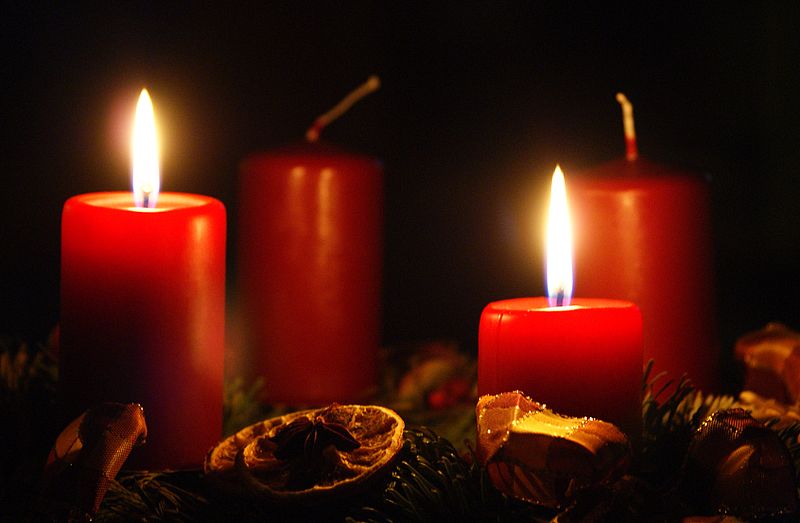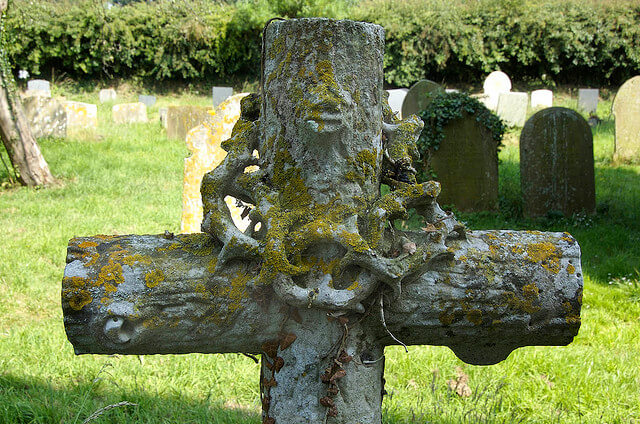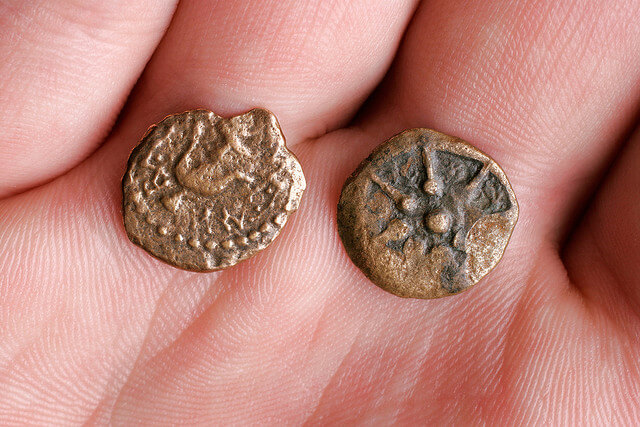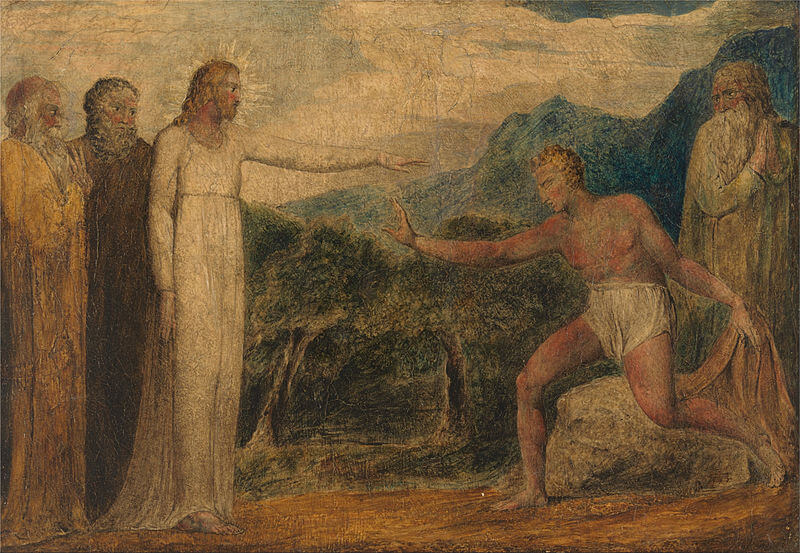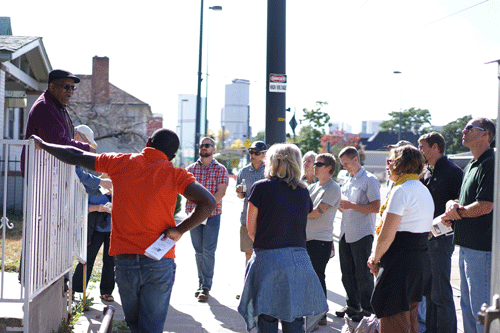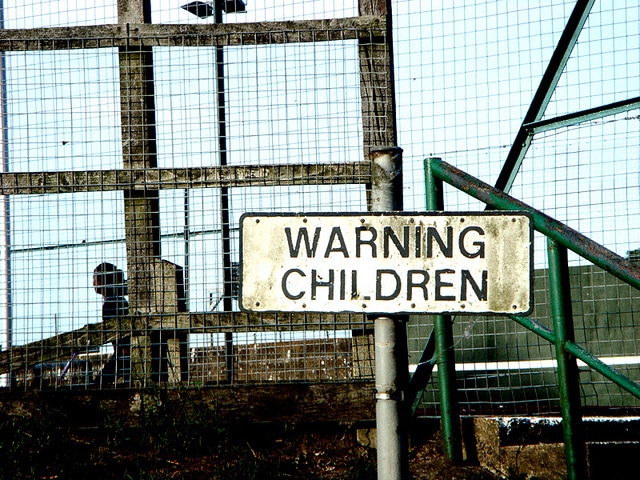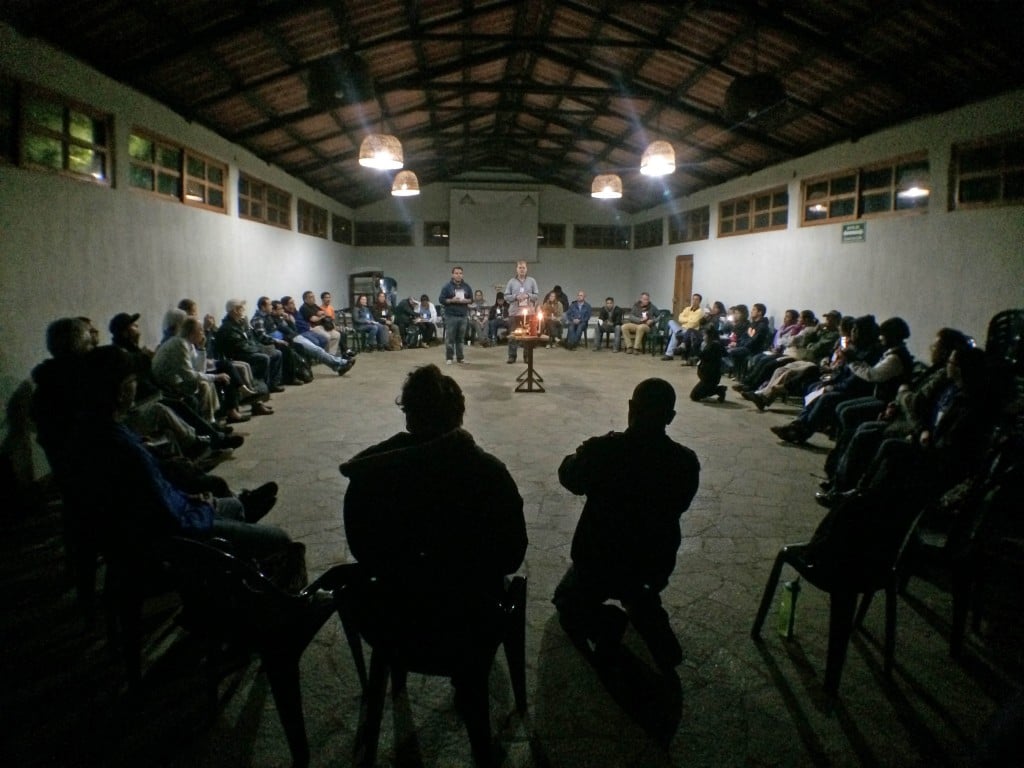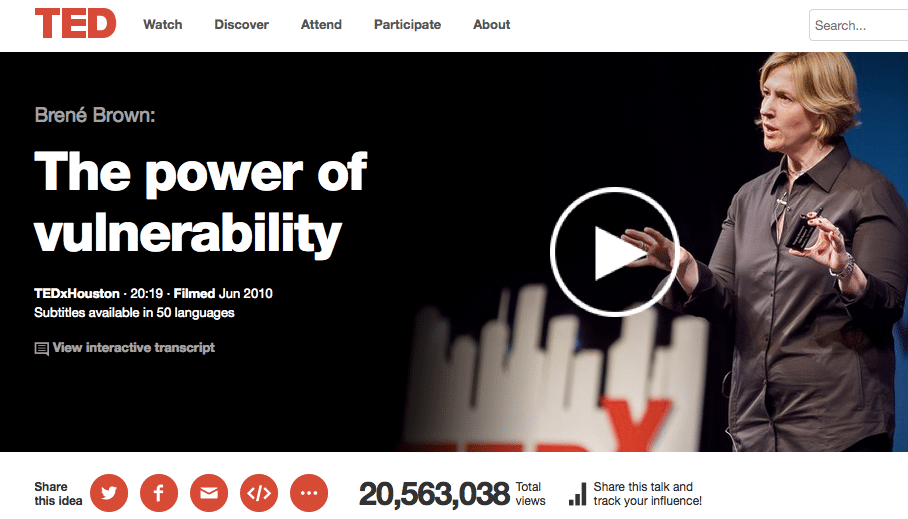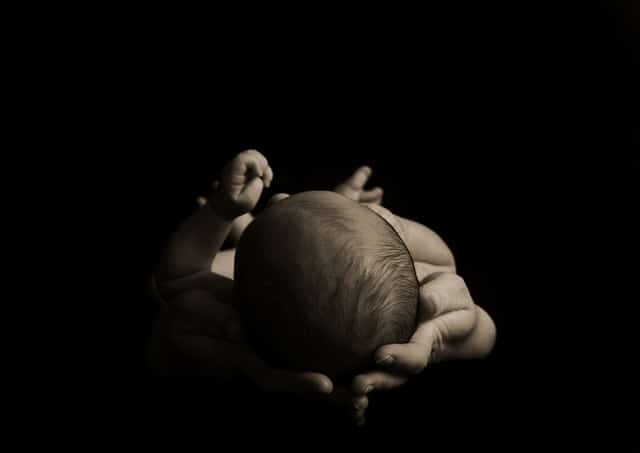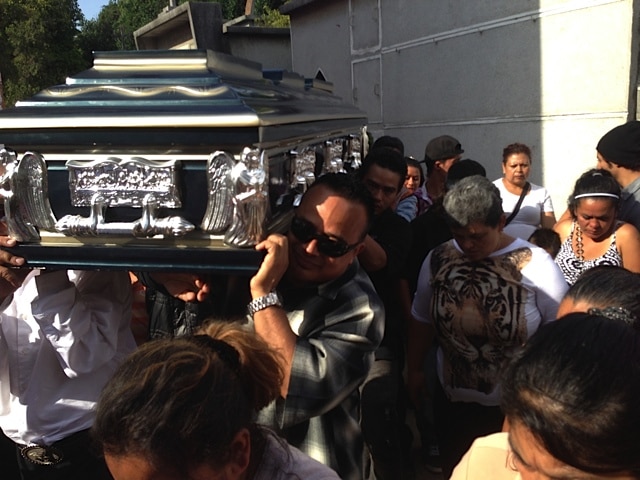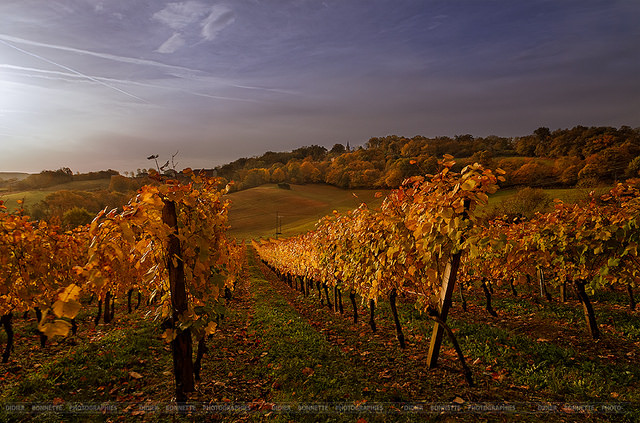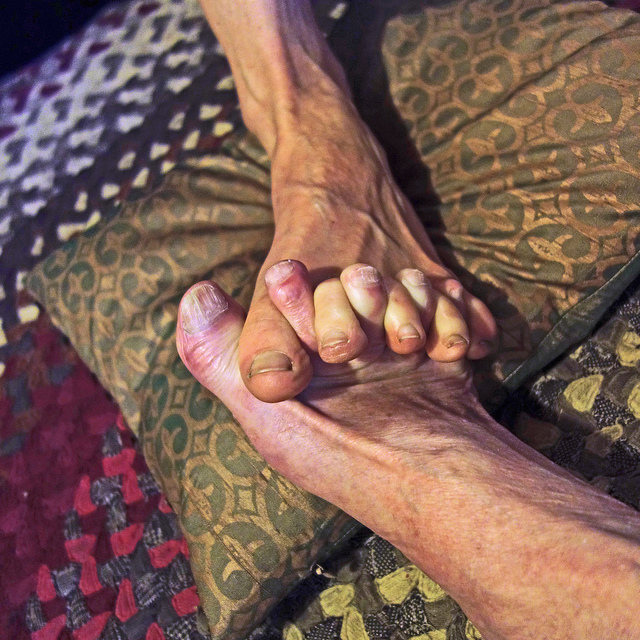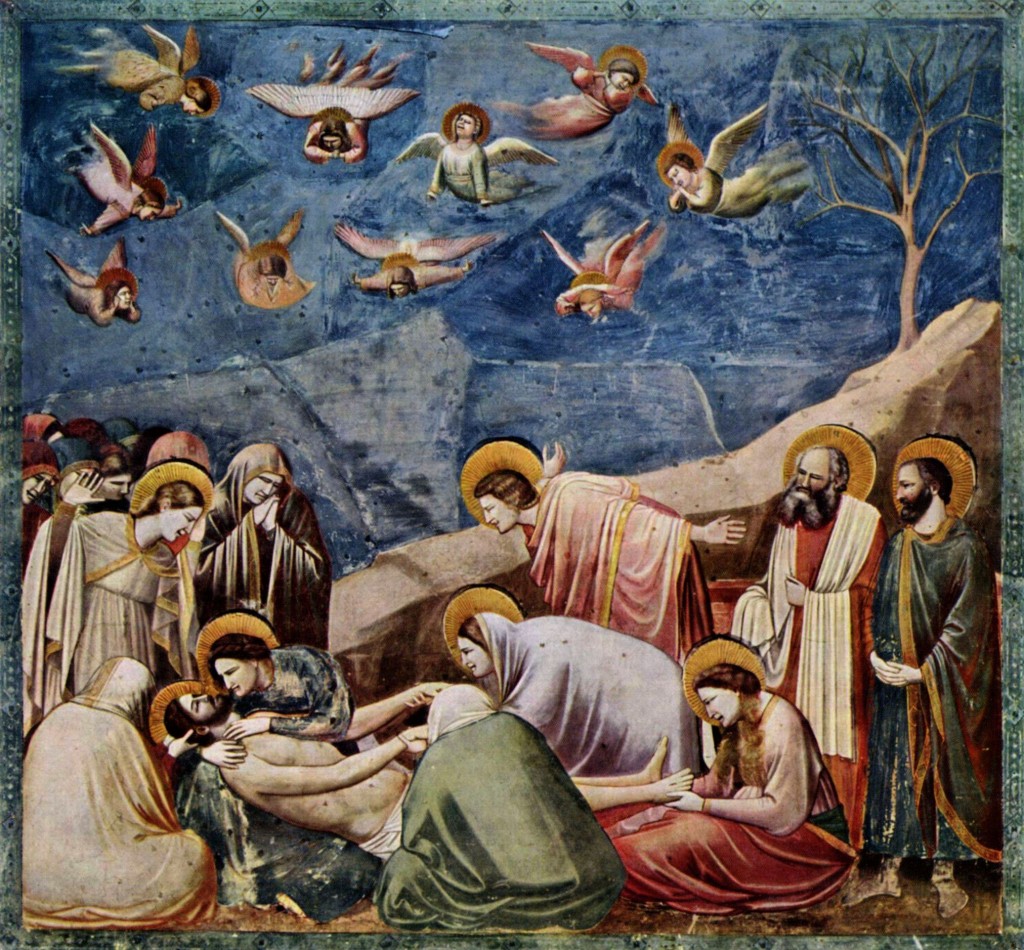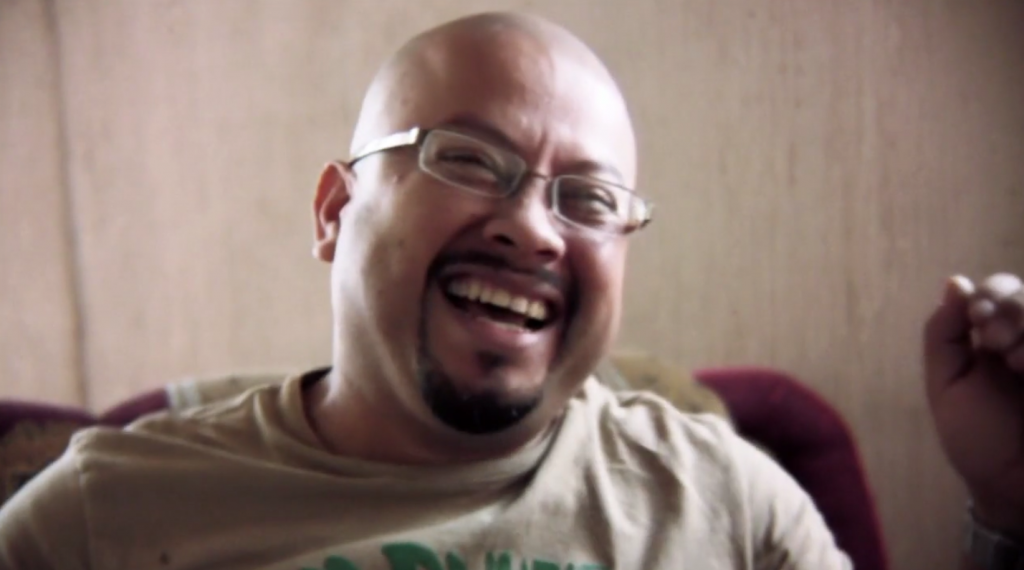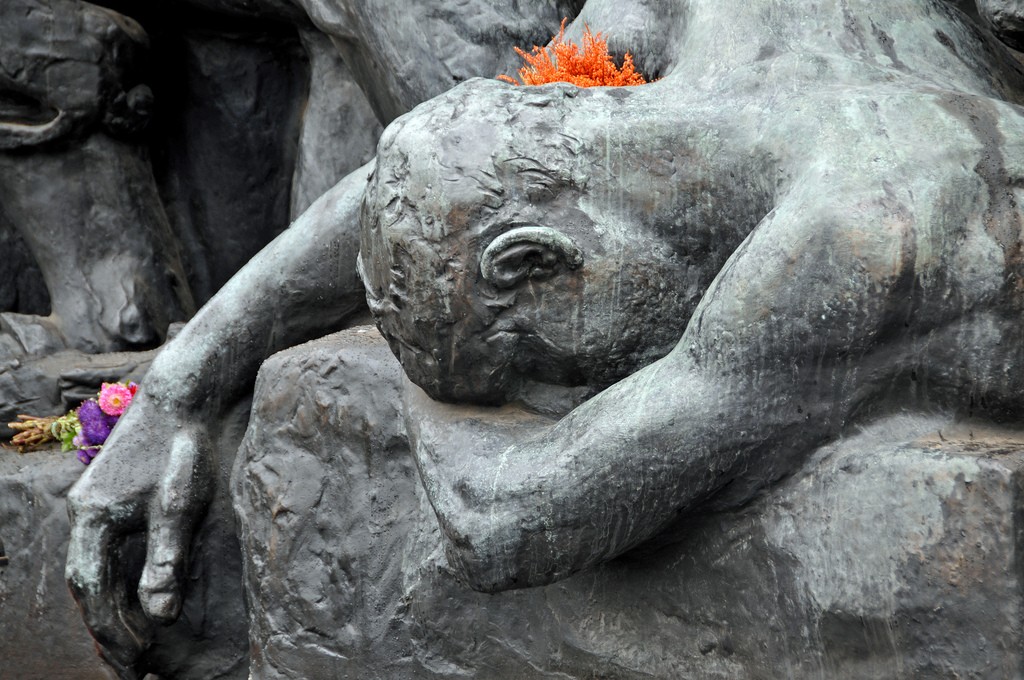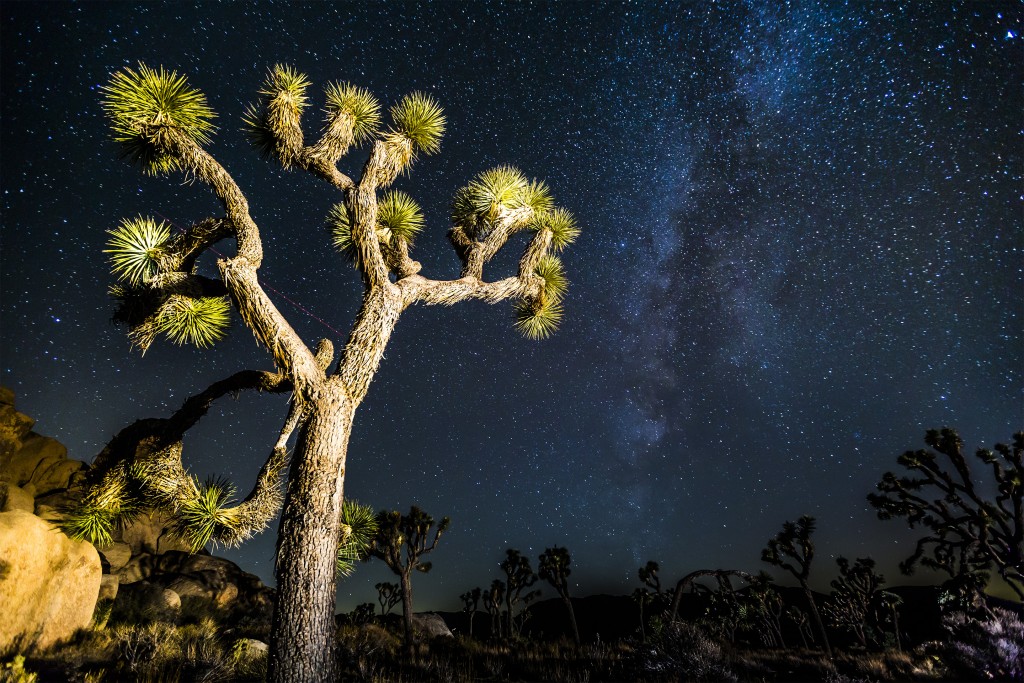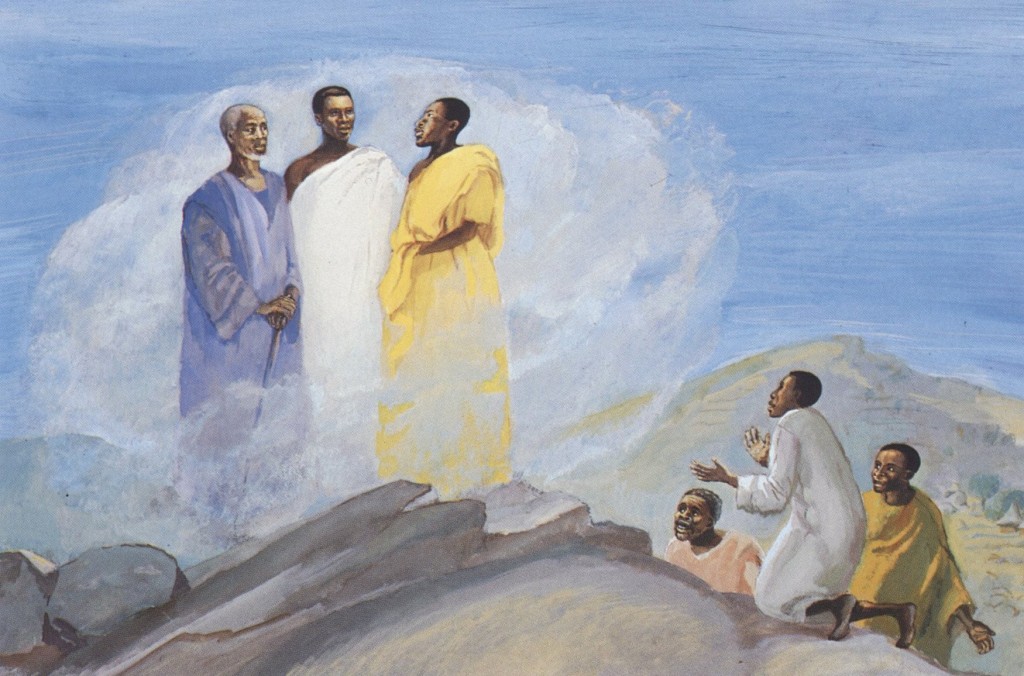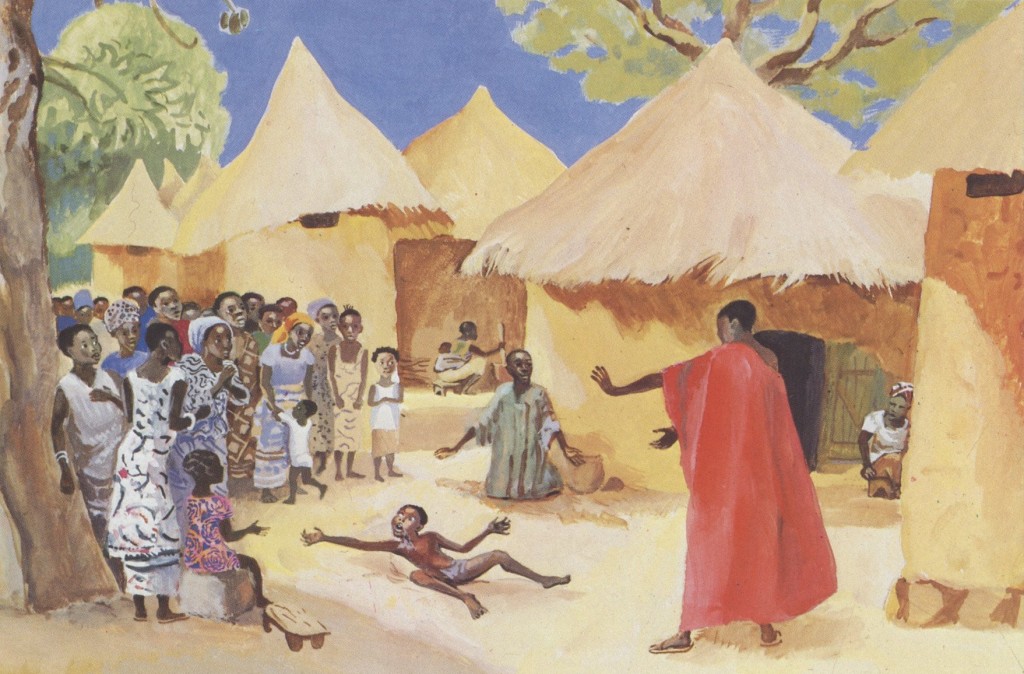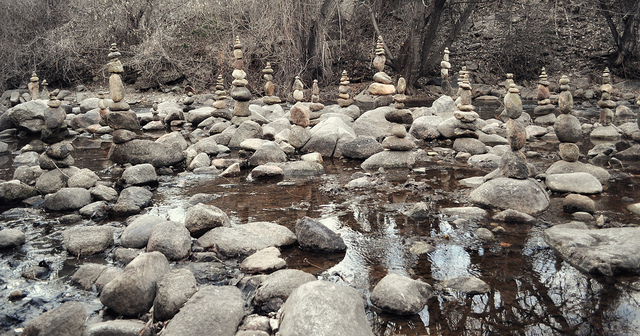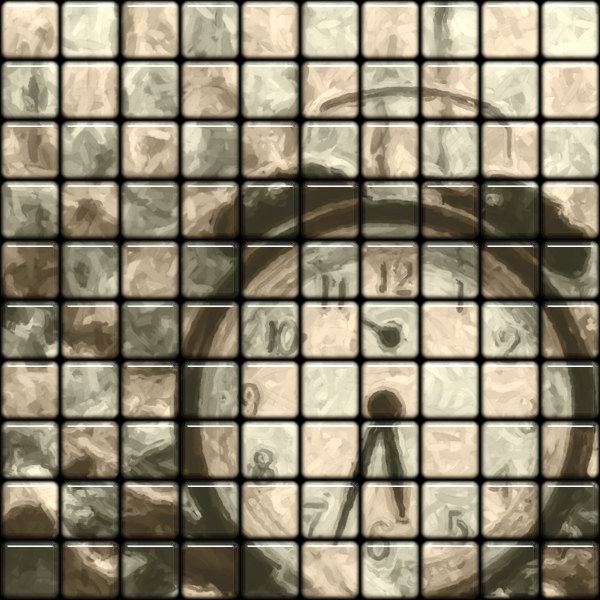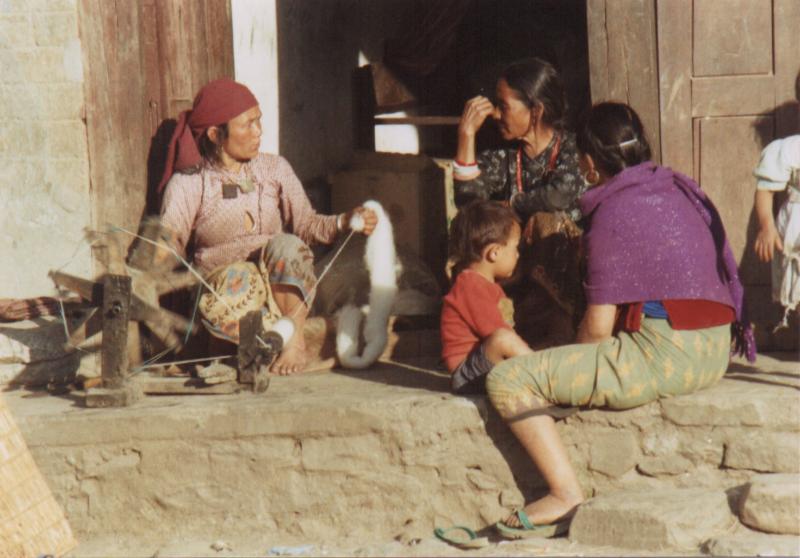Word From Below
Awake in the Water
We would have called it the boonies or the sticks or perhaps BFE. Mark refers to it simply as the wilderness. Whatever the name, it was a place you didn’t so much go to as you went through. And yet, John made the desert a destination. People from the Judean suburbs loaded their campers and headed out.
By Ken Sikes
Word From Below
Stay Woke!
I hate to wake up. Yes, it beats the alternative, but it is so painful. The mattress, pillow, sheets and comforter offer such warm friendship while the cold, hard, dusty floor promises only pain.
Like a bully smacking his fist, the cold air waits knowing I have to pass by on my way home from school (or in this case to the bathroom).
By Ken Sikes
Word From Below
Given in Love
Closely woven with his way of being among us, Jesus taught us. His central metaphor was the “kingdom of God” or “kingdom of heaven” – used 99 times in the New Testament. For those of us who don’t live under military occupation, the imagery can fall a bit flat and abstract – a theological term to be unpacked. For Jesus’s hearers the term “kingdom” must have elicited a visceral response, and not necessarily a pleasant one. Jesus’s hearers went about their lives under the rule of an emperor, governed by a vassal king,
By Scott Dewey
Word From Below
Mercy or Sacrifice?
When Jesus told his disciples that the temple would fall, he was right. It was destroyed in 70 C.E. by the Romans. But there is another, more important, sense in which Jesus saw the temple falling. He saw the sacrificial logic that sustains the temple beginning to crumble, and when this happens the entire system falls apart – slowly but surely. This is what Jesus set in motion on the cross and it’s truly great news, but let’s be clear, it also creates an unstable and dangerous situation in which “nation will rise against nation.” How can this be?
By Kris Rocke
Word From Below
The Widow’s Might
“Did you see the offering of the widow?” Jesus asks his disciples. “In case you think that the warning I just made about the scribes is unwarranted, this woman has just deposited all she had into an offering used to maintain the very oppressive system that has devoured her house in order to build another.” Could it be that Jesus is calling attention to the widow’s actions not so much for her giving but as a continuation of his pesky habit of pointing out the injustice of the scribes, the wealthy, and the oppressive system of temple-based economics that had been built for self-sustainability by those in power?
By Joel Van Dyke
Word From Below
Joy
I recently heard an acronym popular among church youth groups for helping shape their understanding of faith: J.O.Y., which stands for Jesus, others, yourself. It’s a memory tool used to help young Christians in their understanding of discipleship.
Although I wasn’t familiar with J.O.Y., its general meaning was something drilled deeply into my young faith as a Christian. Having attended church all my life, I had been conditioned to see my spirituality through the following lenses: 1) put God first in your life! 2) love your neighbor, and 3) your own needs are not as important.
By Ryan Taylor
Word From Below
Saper Vedere
Our lectionary text this week invites us into one of the principal issues for us at Street Psalms – knowing how to see. Ironically, our teacher this week in learning how to see is actually a blind man. Many Biblical scholars have placed this text at the end of a portion of Mark’s Gospel that begins with the healing of a blind man, thus the section starting with Mark 8:22 and ending with Mark 10:52 is bookended by the healing of blind men. In between these two miracles, Jesus is trying feverishly to get the disciples to see and understand what he’s saying about his death and resurrection, but they are blind to his teachings.
By Joel Van Dyke
Word From Below
Brigands of the Lord
The New Testament scholar N.T. Wright in his book How God Became King: The Forgotten Story of the Gospels, reminds us that Jesus was glorified and crowned king in the most unusual coronation ceremony imaginable: on the cross. Of course, we like to think the coronation ceremony happened sometime after the nasty business of the cross – perhaps sometime after the resurrection in heaven as a reward for having done such a difficult deed. But this is not Jesus’s understanding of his own kingship, as this week’s passage makes clear.
By Kris Rocke
Word From Below
Good God
We’ll find out in a few verses that “give up your wealth” isn’t what this man wants to hear. But putting aside for a moment the questions about entering heaven with or without our respective riches, or what size holes camels can actually fit through, first let’s consider just one word: “good.”
All three synoptic gospels note that Jesus takes issue with the phrasing of the rich man’s use of the word “good.” And each time Jesus says that only one is good, and that one is God.
By Stephanie Dunlap
Word From Below
The Gift of Losing Control
During the recent visit of Pope Francis to the United States, one optic stood out: his daily embrace of children. Cynics might dismiss this as calculated media strategy or worse. An online commenter sneered, “Imagine that, another priest hugging and kissing children.” But Pope Francis, the “pope of the periphery,” makes cynicism difficult with his transparently genuine delight among the vulnerable.
By Scott Dewey
Word From Below
Scandal
This week’s lectionary Gospel text, Mark 9:38-50, is not for the faint of heart. The disciples encounter “someone” casting out demons in the name of Jesus. They want to shut down this rogue minister and put an end to his ministry because he’s not part of their inner circle. But the outsider and his ministry is no threat to Jesus whatsoever. He says, “Whoever is not against us is for us.” The real threat that Jesus exposes in this text is the hidden envy brewing in the disciples’ hearts.
By Kris Rocke
Word From Below
Child in the Middle
Reading Jesus’s comments about children, we are prone to overlay modern notions of the innocence, wonder, and simple delight of childhood. Social historians tell us that at least in the West, this conception especially arose and flourished with the “cult of the child” in post-Enlightenment Victorian times. Romanticized, idyllic images of the child abounded in books and on tea towels. Wordsworth would gush, “Heaven lies about us in our infancy!”
By Scott Dewey
Word From Below
Who Do You Say That I Am?
Perhaps the most beautiful question Jesus ever asked his disciples is found at the very center of the Gospel of Mark. In ancient Jewish literature, the key to a story’s meaning is often found in the middle of the story rather than the end, as is often the case in Western storytelling. This emphasis on the center is most obvious in Jewish “chiastic” poetry, often found in the Psalms; the very center of the poem gives the main point. For the Jewish storyteller, each story has a “sacred center” that contains its unique treasure of meaning.
By Joel Van Dyke
Word From Below
The Smell of Grace
Spread out in front of José was the ragtag congregation of drug addicts and alcoholics to whom he had come to preach. The problem this particular morning was that as he settled in behind the pulpit, he was unable to speak. He stood there feeling helpless until one of the ladies in the front row came up asking him if he was okay. Then she turned and proclaimed to the people around her, “The preacher can’t talk. He needs us to pray for him!”
By Joel Van Dyke
Word From Below
Meditations on (Un) Cleanliness
Richard Beck is Professor of Psychology at Abilene Christian University. On his blog Experimental Theology, Beck writes: “This radical openness to the Other always seems to get undermined in our churches. Why is that?, I mused. After thinking about it, the answer hit me. And it was a simple answer. The same thing that caused the exclusion of people from table fellowship in Jesus’s day is the exact same thing that causes the exclusion today. That is, a group of people is considered to be ‘unclean’ and these people are just not welcome. The reasons for being declared ‘unclean’ might have changed, but the underlying dynamic is still the same. And I began to realize: The logic of being ‘unclean,’ a source of ‘spiritual pollution,’ was undermining Jesus’ radical call to love.”
By Stephanie Dunlap
Word From Below
The Stranger, Revealed
Jesus, like the disciples who were blind to your presence until they dined with you in the Resurrection, we too are blind to your presence until you dine with us. You are the stranger among us, revealed as the loving Host of the meal of our salvation. Open our eyes, Lord, to the stranger among us. We want to see and celebrate you at work in the world – creating, sustaining, and uniting all of creation in the meal of our salvation. Amen.
By Kris Rocke
Word From Below
Bearing Witness to Goodness
Our participation in Holy Communion unites us with the world, particularly those people and places in the world with whom we are most estranged. The Lord’s Table is a radically inclusive table that not only makes room for the “least of these,” it gives them preferred seating. These honored diners are precisely the ones who best remind us that the Eucharist is not the property of Christians as it is sometimes portrayed. It is the universal sign of God’s peace for all.
By Scott Dewey
Word From Below
Induction to Reality
If this is true, the Lord’s Table is not simply a ritual performed on special occasions in clearly recognized “sacred settings” – though it is often exactly and beautifully that. Like Jesus’s “I Am” statements, including his statement about being the Bread of Life, a sweeping universality is held in the particularity of this Meal.
By Kris Rocke
Word From Below
Liturgy of Life
Throughout his life and ministry, Jesus modeled for us the life-long human liturgy of being taken, blessed, broken, given, and spoken into existence. This week’s lectionary passage continues a series of Gospel excerpts in which Jesus prepares for the Eucharist by proclaiming that he is the bread of life.
By Scott Dewey
Word From Below
Among So Many
Jesus hosts a table at which there is always enough; in fact, more than enough. As if to underscore this point, the feeding of the 5,000 is recorded in all four Gospels. Aside from the Resurrection, it is the only miracle recorded in each Gospel (Matt. 14:13-21; Mark 6:30-44; Luke 9:10-17; John 6:1-15). Each Gospel recounts the miracle using the same highly liturgical structure – Jesus took, blessed, broke, and gave.
By Kris Rocke
Word From Below
Come Away
This week our globally dispersed Street Psalms staff gathers to work and to rest through a retreat in the far upper left of the United States (that is, Hood Canal, WA).
As Jesus shows us in this week’s lectionary, even the most devoted disciples need to set boundaries for self-care.
By Kris Rocke
Word From Below
Pawn of Desire
Growing up as a relative outsider to the Christian faith, but born into its cultural heritage, I understood this passage to be another exhibit in the “women are seductive and untrustworthy” narrative.
A young woman danced and by dancing got what she wanted, right? And another prophet of God was sacrificed to crowd desire and people-pleasing – a mirror of what would soon enough happen to Jesus Christ.
By Stephanie Dunlap
Word From Below
Vulnerability and Authority
Having given away or sold most of our stuff, my wife Melanie and I were headed to Asia as community development workers with an organization called Gooddeeds. The name pretty much summed up what we wanted to do. As a young couple we wanted to engage our lives and our faith with the poorest, someplace. Woefully clueless but eager, we cast about for, well, clues. Tips, training, insights – anything to steer us in the right direction.
By Scott Dewey
Word From Below
Riding the Waves of the City
I spent my formative childhood years in wilderness. Every day prompted a new foray into the woods with my dog Bessie leading the way. This was actual wilderness, not the national kind with streams of visitors. Bessie and I were the only outsiders; our hosts were cougars, bobcats, coyotes, bears, owls, skunks, and rattlesnakes.
By Scott Dewey
Word From Below
Sit Back and Relax Into Grace
Jesuit priest Anthony de Mello said, “The shortest distance between a human and truth is a story.” Arguments rarely do anything but invest us more deeply into our little “truths.” We almost never see Jesus being sucked into a debate. Instead he tells stories and riddles that confuse and disorient his hearers. They are like time-release capsules that work on us from the inside-out.
By Kris Rocke
Word From Below
Dismantling and Re-framing Family
Spend any time at all in communities challenged by poverty and violence, and you will encounter people who have spent formative stages of life without the blessing of family. Such hardships may be part of your own story, and you know the reality all too well.
For abandoned people – who may be found in any corner of society – the words of Jesus in Mark 3 can provide genuine comfort and hope. Jesus re-frames and re-constitutes “family” in such a way that it includes those formerly excluded.
By Scott Dewey
Word From Below
The Paraclete Comes to Guatemala City
Last week in Guatemala City, the work of the Holy Spirit as described by Jesus in John 16 was brought to life in vivid texture amidst a senseless tragedy. Blanca Gomez, loving mother of eight, descended the path into the densely inhabited ravine known as “La Limonada” to bring some lunch to her son.
By Joel Van Dyke
Word From Below
Sent How?
Is Matthew 28:19-20 the “Great Commission? Is it the text that should guide how we understand God’s mission? Could it be that the near canonization of the term has actually caused damage to our understanding of the Christian mission?
By Kris Rocke
Word From Below
Make Yourselves At Home
The more closely we examine Jesus’s words in John 15 – among the last words he would speak before his death – the more it seems an awkward mix of metaphors. On the one hand, he uses as the key verb “abide,” which sounds to our ears almost transcendental, serene, relinquished. Something that could happen most comfortably on a couch.
By Scott Dewey
Word From Below
Intimacy
The story of God in the world, because it is a love story, moves ever toward intimacy, toward oneness.
As with all love stories, obstacles abound – comical and tragic misunderstandings, turnings away, outright betrayals, and faltering reaches toward the other.
By Scott Dewey
Word From Below
The Kiss of God
A few years ago I was sharing about my own experience of the risen Christ. I was speaking in parables and one young man urged me to “explain” myself more clearly. I was tempted to try. And then, in a flash of inspiration (sometimes my “inspirations” go terribly wrong), I paused for a moment and asked if he was married.
By Kris Rocke
Word From Below
Easter: My Redeemer Lives!
We made it!! For us as a community following Jesus, this Easter declaration by Job in the midst of his intense suffering, pain, and loss is a fitting bridge from the season of Lent into the great light of resurrection.
We began the Lenten journey over six weeks ago and have persevered through a long, arduous journey toward and through the cross.
By Joel Van Dyke
Word From Below
Holy Saturday: “As Secure as You Know How”
How often I find myself living like the Pharisees, not able to rest in the holy silence of Saturday, not allowing it to simply be what it is.
By Joel Van Dyke
Word From Below
Good Friday – God With Us, Alone
I have loved ones in hard places, and the hardest place of all may be the place of abandonment.
By Scott Dewey
Word From Below
Coming Home
This Sunday is Palm Sunday, when Jesus makes what some Christians refer to as his “Triumphal Entry” into Jerusalem on the back of a young donkey. Crowds cheered and hailed him. “Hosanna!”
So there’s Jesus, fully human and fully divine – but he couldn’t have felt all that triumphant. He knew well to distrust fickle crowds, and he probably knew that in this very crowd were the same faithful who would crucify him five days later.
By Stephanie Dunlap
Word From Below
The Sweetness of Death
“… if it dies, it produces many seeds.” Jesus utters these words in anticipation of his own death – and Sugar’s.
By Joel Van Dyke
Word From Below
The Lightest Touch, The Touch of Light
Glancing back, I saw my father slowly slide his belt from his trousers. He folded it in half. His face was ashen; I turned away. I tried in vain to relax my buttocks – rumored among friends to make it not hurt so bad.
I wouldn’t know. I’d never gotten the belt before,
By Scott Dewey
Word From Below
Temple Cleansing or Temple Closing?
Jesus did not “cleanse the temple.” Sadly, most Bibles add this heading to the story. It is misleading.
Rather, Jesus closes it down! Better yet, he creates a new temple in its place – an abode of mercy that is himself. This is the heart of the Gospel!
By Kris Rocke
Word From Below
Suffering and Love
To live is to suffer, Gautama Buddha taught. This is the first of the Four Noble Truths of Buddhism.
Raise your hand if by some chance your life experience has taught you otherwise. Maybe you are an extraordinarily fortunate child reading above your grade level here. Even then, I might prompt you to think again upon your few years.
By Scott Dewey
Word From Below
Bread, Temple, and Crown: a Lenten Invitation
This week we celebrated Ash Wednesday, the beginning of Lent. Christians worldwide will enter into a heightened time (40 days) of prayer, reflection, and spiritual companionship with Jesus to the cross. At Street Psalms we are grateful for this annual pilgrimage that awakens our individual and collective hearts to our own true desire.
By Joel Van Dyke
Word From Below
A Dazzling Secret
There is nothing quite so dangerous as trying to occupy the place of resurrection glory prematurely or falsely.
Throughout Mark’s Gospel, Jesus repeatedly tells his disciples not to mention his identity too soon. Theologians often refer to this as the “messianic secret.”
By Kris Rocke
Word From Below
Don’t Tell
Anthropologist Rene Girard and theologian Walter Wink have written extensively on how crowds are highly unstable and volatile socio-spiritual realities. They are more than the sum of their parts. They are easily moved, especially towards violence. This is why at every turn throughout the Gospels Jesus refuses to be the puppet of the crowd’s desire, which can one day shout “Hosanna, Hosanna,” and the next “Crucify him, crucify him.”
By Kris Rocke
Word From Below
Leaving Our Nets
This week we read of four fisherman Jesus encounters while strolling along the shores of the Sea of Galilee (Mark 1:14-20). We don’t know if these hardworking fishing professionals have ever even heard an actual sermon from Jesus. It seems that Jesus’s preaching in Galilee was finished prior to this encounter on the shore.
By Joel Van Dyke
Word From Below
Holy Everything
This week’s text is a reference to the story of “Jacob’s Ladder” in the Old Testament and the radical implications of the Incarnation.
Remember Jacob’s Ladder? Jacob stole his brother’s birthright and fled into the desert. Eventually he stopped running and fell asleep, exhausted. The heavens opened and he saw angels ascending and descending on the place he occupied. Celtic spirituality calls this sort of thing a “thin place…”
By Kris Rocke
Word From Below
Baptismal Blessing
We are familiar with the red-letter Bibles that highlight the words of Jesus. I’d like to see a blue letter edition that highlights the words of the Father. It wouldn’t take much ink. We only hear the voice of God the Father four times in the New Testament. In each case it is the voice of blessing. The Father’s economy of words serves only to magnify their meaning.
By Kris Rocke
Word From Below
The Word Without A Word
About a hundred years ago the poet T.S. Eliot produced, some would argue, his best and most influential work. It was before his conversion to Christianity. Physical ailments, an uneven academic career, and a tortured marriage left him in a frame of mind that produced “Waste Land” – 76 memorably bleak lines such as “April is the cruelest month.”
By Scott Dewey
Word From Below
To Hope and To Wait
In the Spanish language the verb esperar means both “to hope” and “to wait.” It is a beautiful Advent verb.
By Joel Van Dyke
Word From Below
Let It Be
She reminds us that transformation is not something that we can either will or work into existence – ever.
By Kris Rocke
Word From Below
Advent Hope
It’s the third week of Advent and soon the “Word will become flesh.” We will hear the voice of an angel announce “peace on earth.” But let’s be clear, the pathway to peace is paved by the disruptive voice of the prophet.
Again this week we hear the voice of John the Baptist crying out in the wilderness.
By Kris Rocke
Word From Below
BEEP BEEP BEEP Arggg
In Mark we get a smelly guy yelling – dressed like a nutcase. Right from the opening verses.
“Repent!” Literally, “get a different mind!” Wake up! Rub the sleep boogers out of your eyes. Splash some water if that’s what it takes. Brew a strong cup. Yes this is going to be good, and you’re going to miss it in the state you’re in.
By Scott Dewey
Word From Below
Awake For What?
How much and how many can we care about before our hearts grow sleepy? There is so much to be aware of that things can dull to a low hum. It’s a struggle to stay present. Addictions large and small help take the edge off, keeping us drowsy.
By Stephanie Dunlap
Word From Below
Deficiencies
And he told them many things in parables, saying: “Listen! A sower went out to sow…
some seeds fell on the path…
rocky ground… thorns… good soil.
(Matt. 13:1-9)
By Kris Rocke
Word From Below
My Well-Fitting Yoke
Your fully human self will suit you just fine, Jesus’ story says. Check in the mirror, you’ll see!
By Scott Dewey
- « Previous
- 1
- 2

